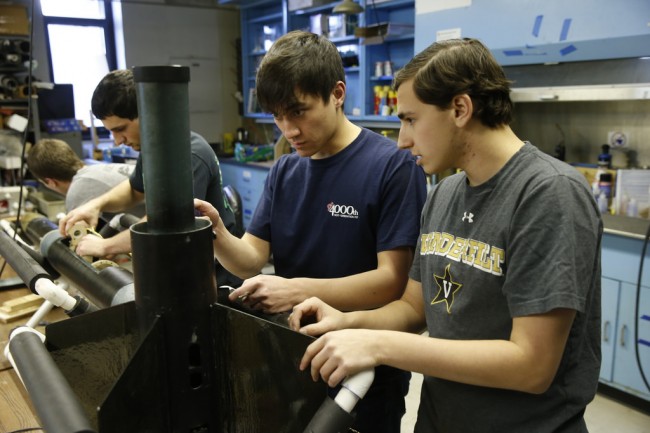Is Vanderbilt more stressful than the average university?
Vanderbilt was recently ranked by CollegeXpress as one of the top ten most stressful undergraduate institutions in the U.S., after Stanford, Columbia, MIT, UPenn, Harvard, and Princeton. This ranking takes into account data about the cost of tuition, academic rigor, acceptance rate, rigor of the school’s graduate engineering program, and crime on campus, using data from the U.S. News & World Report and the National Center on Education Statistics.
At face value, this #7 ranking does not seem like something to brag about. Why would anyone choose to spend four years of their life here if it was possible to earn a degree from a less stressful environment?
But when you take a closer look at the ranking system used by The Daily Beast, you see that the only true negative factor is crime.
I want to address each of these factors:
• Tuition: The article claims that high tuition is stressful. This would be true if everyone had to pay the full cost of tuition, room, and board ($57,150 for 2014-2015), but this number does not reflect the actual cost to students. In 2013-14, more than 60% of undergraduate students received some type of financial assistance from one or more sources. For a family with an annual income range of $80,000 to $120,000, financial aid awards range from $14,000 to $62,000 with a median award of $47,800. Vanderbilt University is dedicated to meeting 100 percent of a family’s demonstrated financial need (using federal work study but no loans), which is the reason that I and many of my friends are attending Vandy instead of another comparable university. For more information about Vanderbilt’s financial aid process, see this brochure.

• Academic rigor: The ranking system uses academic rigor as indicator of competitiveness, which it assumes is stressful. However, when I think of academic rigor, I think of how highly qualified my professors are, I think of having to really earn my A’s, and I think of how proud I will be to graduate in three years from a well-respected institution.
• Acceptance rate: A lower acceptance rate also assumes a more competitive class of students. Regular decision applicants for the Class of 2018 were accepted at a rate of 11 percent; the middle 50 percent of these students earned a score of 33-35 on the ACT. The majority of rising class held positions in clubs or student groups in high school, nearly half earned an athletic award or held an athletic leadership position, and an astounding 93 percent earned an award or held a leadership position in a service organization. Such a successful group of students indeed contributes to setting a high standard for academics, athletics, and service, but this can be very healthy “competition” as we spur each other on to do greater things. Personally, I suffered briefly in the transition from being a big fish in a small pond of my high school to being a small fish in the sea of college, but now I love being surrounded by people who are accomplished, intelligent, and passionate.
• Graduate engineering: The rigor of the graduate engineering program at Vanderbilt could possibly affect undergrads in the School of Engineering, but it should also be able to provide them more access to research projects, well-qualified instructors, and expensive technology.

Note: If you are in fact stressed, take a look at these tips for managing stress in a health way.